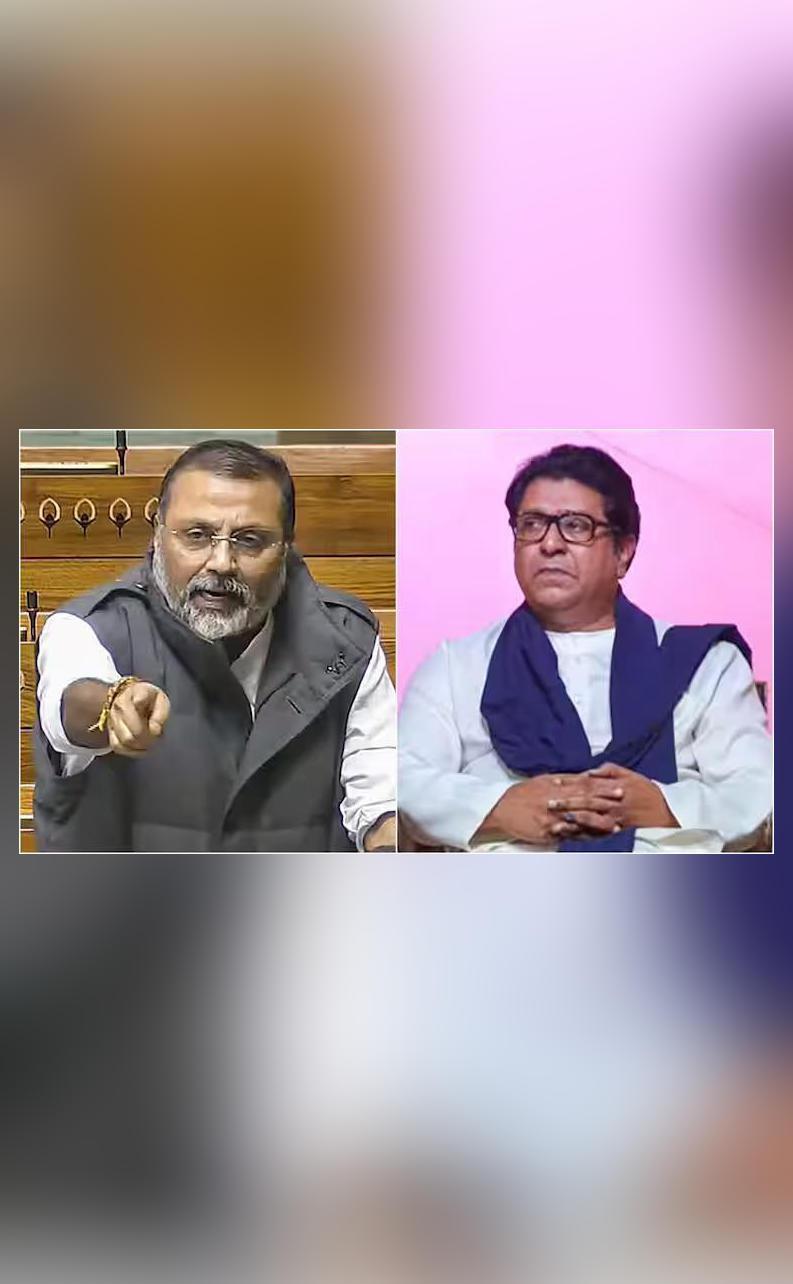
Dubey shares WikiLeaks post, says ‘Thuggery is Raj’s sole purpose’
The ongoing controversy over the use of Hindi and Marathi in Maharashtra has taken a new turn, with BJP MP Nishikant Dubey hitting out at MNS chief Raj Thackeray over incidents of violence against people who do not speak Marathi in the state. Dubey has shared a WikiLeaks document from 2007, which highlights an incident of violence against Bihari students in Maharashtra, and has accused Thackeray of using thuggery as his sole purpose.
The controversy began when Thackeray made a statement asking people to boycott Hindi-speaking people in the state, which was met with widespread criticism from various quarters. Thackeray’s statement was seen as an attempt to create a divide between people who speak Marathi and those who speak Hindi, and was criticized for being divisive and discriminatory.
Dubey, who is a vocal critic of Thackeray, has now shared a WikiLeaks document from 2007, which highlights an incident of violence against Bihari students in Maharashtra. The document, which was originally published on the WikiLeaks website, details how a group of students from Bihar were beaten up by a mob of Marathi-speaking people in Pune.
Dubey has used this document to make a pointed attack on Thackeray, saying that the MNS chief’s sole purpose is to promote thuggery. “Thuggery is his sole purpose,” Dubey said in an interview. “If Raj Thackeray doesn’t get public support, he puts goons forward.”
The WikiLeaks document, which was published in 2007, is a report from the Indian embassy in the United States, which details an incident of violence against Bihari students in Pune. The report states that a group of students from Bihar were beaten up by a mob of Marathi-speaking people, who were protesting against the use of Hindi in the state.
The document also highlights the involvement of local police officials in the incident, who allegedly turned a blind eye to the violence. The embassy report states that the police officials were “ineffective” and “appeared to be hand-in-glove with the perpetrators of the violence”.
Dubey has used this document to highlight the pattern of violence and intimidation that has been perpetrated by Thackeray’s supporters in Maharashtra. “This is not the first time that such an incident has taken place,” Dubey said. “Raj Thackeray’s supporters have been involved in numerous incidents of violence and intimidation against people who do not speak Marathi. He is using thuggery as a means to silence his opponents and to impose his language on the people of Maharashtra.”
The controversy has sparked a heated debate in Maharashtra, with many people expressing outrage over Thackeray’s statement and the violence that has been perpetrated by his supporters. Many people have also called for Thackeray to be held accountable for the violence and intimidation that has taken place in the state.
In response to the controversy, Thackeray has said that he is not opposed to Hindi, but is rather opposed to the use of Hindi as a dominant language in Maharashtra. He has also said that he is working to promote Marathi as a language and to protect the interests of Marathi-speaking people in the state.
However, many people have criticized Thackeray’s stance, saying that it is divisive and discriminatory. They argue that promoting one language over another is not the solution to the problem, and that it is rather a means to create a divide between people.
The controversy has also sparked a debate about the role of language in Indian society. Many people have argued that language is a matter of personal preference, and that people should be free to speak any language they choose. Others have argued that the use of a particular language can be a means to impose one’s culture or identity on others.
In conclusion, the controversy over the use of Hindi and Marathi in Maharashtra has highlighted the complex issues surrounding language and identity in Indian society. While Dubey has used the WikiLeaks document to attack Thackeray and his supporters, the controversy has also sparked a wider debate about the role of language in Indian society.






